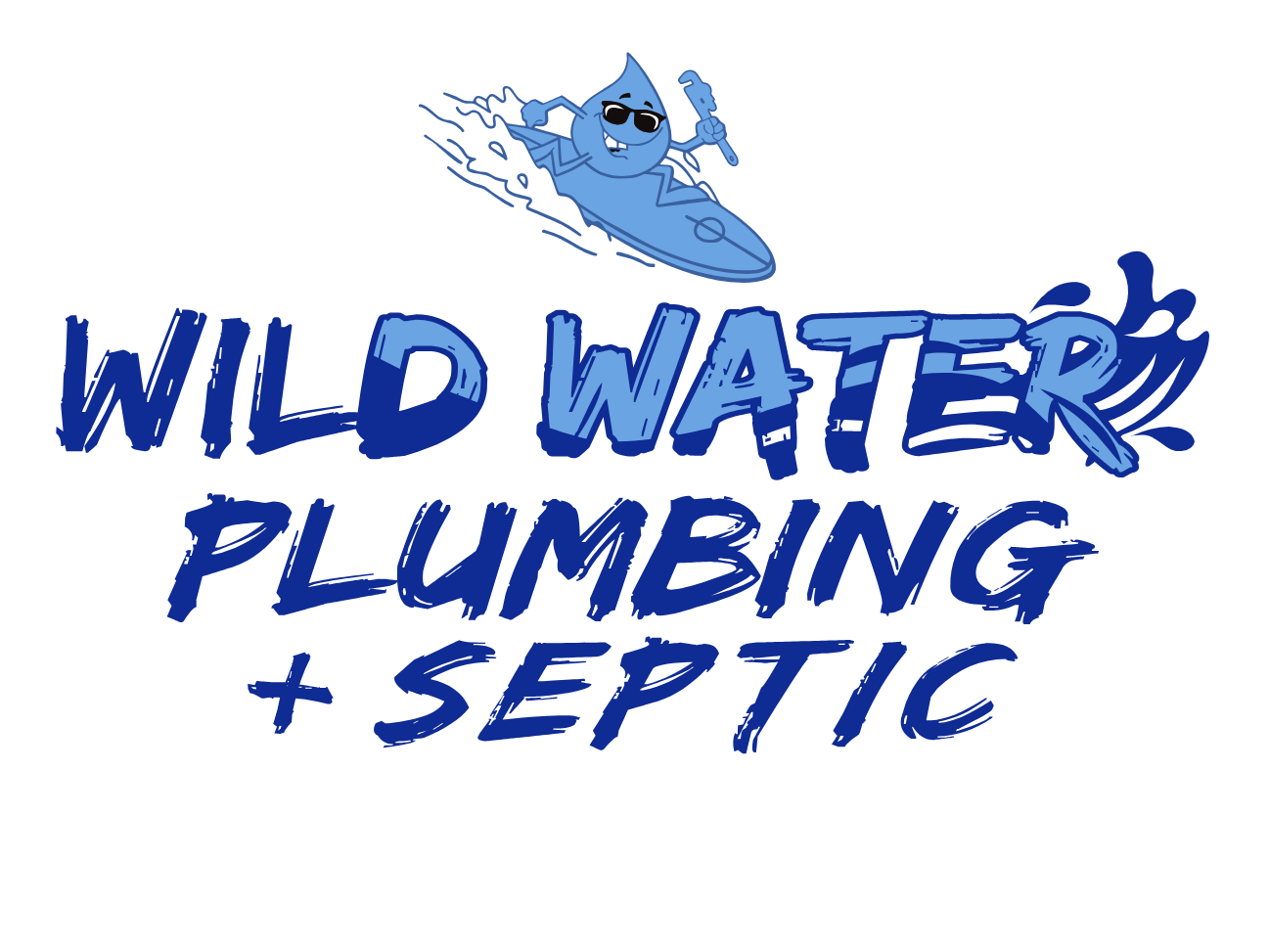By Justin Wilder, Owner of Wild Water Plumbing | Septic Systems
Septic Odors in Carolina Beach Aren’t Random: They’re a Warning Sign of What’s Happening Underground
If you live in Carolina Beach, you already know how quickly the weather can change.
One minute the sun is shining over Cape Fear River and Snow’s Cut Bridge, and the next, a storm rolls in and dumps inches of rain in a single afternoon.
As a septic professional, I know exactly what comes next.
Within 24 to 48 hours after heavy rain, the calls start pouring in from Carolina Beach homeowners:
- “Justin, my yard smells like sewage.”
- “I’m getting a weird odor near the tank.”
- “Every time I flush, I smell something bad outside.”
- “My drain field smells terrible after that last storm.”
If this sounds familiar, you’re not alone.
Carolina Beach sees more septic odor complaints after rain than most places in New Hanover County.
And it’s not because homeowners are doing anything wrong.
The real causes are hidden under the soil saturated drain fields, older systems, rising groundwater, and compacted sandy soils that drain more slowly than most people expect.
Let me walk you through why this happens and what you can do to prevent those post-storm septic smells.
Heavy Rain Saturates Carolina Beach Drain Fields and Odors Rise to the Surface
Your septic drain field relies on dry, oxygen-rich soil to filter wastewater. But after heavy rain in coastal towns like Carolina Beach, that soil becomes completely saturated.
When the soil is saturated:
- wastewater cannot move through the drain field
- gases get trapped and forced upward
- bacteria slow down or die
- odors rise into the yard and around the tank
- wastewater lingers on the surface longer
Carolina Beach is especially vulnerable because many homes sit on low-lying, flat land close to the Cape Fear River or coastal marshes.
That means water has nowhere to drain quickly.
Less drainage = more odor.
This is the number one reason smells increase immediately after rain.
Older Septic Systems in Carolina Beach Weren’t Built for Today’s Water Use
Carolina Beach has a mix of newer builds and older cottage-style homes, some dating back 40 to 60 years.
Those original systems were not designed to handle modern water usage or modern appliances.
Older systems often have:
- undersized tanks
- shallow drain fields
- outdated piping
- deteriorating distribution boxes
- poor soil separation
When heavy rain floods the soil, older systems lose the little efficiency they still have. Wastewater sits longer, gases escape, and odors intensify fast.
I’ve seen systems from the 80s in areas near Lake Park Boulevard, Carolina Beach Avenue, and Dow Road that simply cannot keep up with seasonal rainfall.
Soil Compaction Around Carolina Beach Homes Makes Drainage Worse
Many Carolina Beach homes were built on lots that have been graded, packed, leveled, or driven over repeatedly for decades.
Construction, parking, landscaping equipment, and even foot traffic compress the soil over time.
Compacted soil causes:
- slow water absorption
- standing puddles
- reduced oxygen near trenches
- slower wastewater filtering
- stronger and longer-lasting odors
In compacted soil, the drain field becomes more like a sponge that can’t release water.
When it fills up, the system has no place to send wastewater, and gases escape right up through the yard.
Rising Groundwater Levels Push Odors to the Surface
Carolina Beach has one of the highest groundwater levels in the region due to:
- proximity to the ocean
- the Cape Fear River
- coastal marshes
- tidal influence
- stormwater runoff
When groundwater rises after rain, it can reach the bottom of your drain field trenches.
That means wastewater has almost no place to go.
What happens next:
- gases become trapped
- the drain field “burps” odors to the surface
- the tank fills faster
- vents release stronger smells
- the yard may smell like rotten eggs or sewage
This is one of the most common issues I see in neighborhoods off Saint Joseph Street, Spartanburg Avenue, and Carolina Sands.
If You Smell Septic Odor After Rain, Your System is Warning You
Septic systems don’t randomly smell bad. A strong odor is always a sign of:
- restricted drainage
- gas buildup
- oversaturation
- partial system overload
- bacterial imbalance
Even if the odor goes away in a day or two, the system is telling you that groundwater, soil compaction, or aging components are already affecting performance.
Ignoring these early warning signs leads to:
- clogged drain fields
- slow drains inside
- tank overflow
- complete system failure
A flooded drain field doesn’t fix itself.
How Carolina Beach Homeowners Can Reduce Septic Odors After Rain
You cannot control the rain—but you can help your septic system recover faster and operate more efficiently.
Improve yard drainage
Redirect runoff away from your drain field and tank.
Install an effluent filter
Prevents solids from being pushed into the drain field during wet periods.
Upgrade to a modern EZflow drain field
Works significantly better in saturated coastal soils.
Pump more frequently
Coastal systems need more regular maintenance than inland homes.
Add soil aeration or French drains
These help water leave the drain field faster.
Fix compacted soil
Reconditioning the soil around trenches improves absorption.
Replace aging tanks or lines
Old systems fail faster under heavy rainfall conditions.
Carolina Beach’s Environment Is Tough on Septic Systems: But You Don’t Have To Fight It Alone
Living this close to the water comes with challenges that inland homes never face.
If your septic system smells after rain, it’s not your fault; it’s the natural result of saturation, older infrastructure, and coastal soil conditions working against you.
I’m Justin Wilder, owner of Wild Water Plumbing, Veteran Owned.
If you’re dealing with odors, backups, slow drains, or wet spots, I’ll diagnose the problem and help you protect your home in Carolina Beach.
Call Wild Water Plumbing today. I’ll inspect your system and keep those post-rain septic odors from becoming a permanent issue.
Stay safe and prepared, Jacksonville.
– Justin Wilder, Owner
📞 Call or text me directly at (910) 750-2312 to schedule your storm check today.
Wild Water Plumbing—Local, Veteran-Owned, and Always Ready.
—


